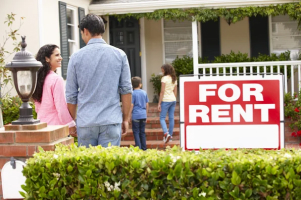
Contact Halavanau Injury & Accident Law today For a Free Consultation (415) 692-5301

Life as a tenant in San Francisco, California, can be complex. Understanding your rights and legal protections is crucial in an ever-evolving real estate market. At Halavanau Injury and Accident Law, our San Francisco Tenant Lawyer provides expert legal assistance to ensure your rights are safeguarded, and your concerns are addressed.
Our landlord-tenant lawyer can help you handle common landlord-tenant disputes. We understand that California tenants face concerns, and our law firm can represent renters in protecting their rights. Learn more about our Bay Area services below, and reach out to us for sound advice on various legal issues.

Navigating the legal landscape of tenant rights can be daunting, but you don't have to do it alone. At Halavanau Injury and Accident Law, our lawyer is seasoned and well-versed in a wide array of tenant issues, and we are dedicated to assisting you throughout the process.
A. Legal Consultations and Case Evaluations
Tenant laws can be complex and multifaceted, with each county having specific rules, leaving many individuals overwhelmed and unsure of how to proceed. That's why we provide thorough legal consultations and case evaluations. During these consultations, our team will dissect the intricacies of your case, explain your rights, and discuss potential legal strategies.
We aim to demystify the legal process, arming you with the information necessary to make informed decisions about your situation.
B. Rent Increase Disputes and Challenges
In San Francisco, rent control laws regulate how much landlords can increase rent each year. However, some landlords attempt to bypass these laws and unfairly increase rent.
When you're facing a rent increase dispute, our experienced tenant lawyer can guide you. We will review the circumstances of your case, determine whether the rent increase is legal under San Francisco and California laws, and challenge any unlawful increases. You'll be better positioned to advocate for fair and reasonable rent with us on your side.
C. Assistance With Eviction Notices
Receiving an eviction notice can be a stressful and emotional experience. But it's crucial to know that you have rights, and eviction isn't immediate. Unlawful detainer actions are lawsuits that landlords use to evict tenants, but there are often legal defenses available.
At Halavanau Injury and Accident Law, we will review your eviction notice, explain your rights, and discuss potential defenses. We will analyze if the landlord’s actions leading up to the eviction notice present a basis for the tenants’ claims against the landlord. For example, if the landlord is trying to evict a tenant in response to the tenant’s complaint regarding habitability issues, the basis for such eviction would be improper, and the tenant would have a potential claim against the landlord.
D. Wrongful Evictions and Illegal Practices
Unfortunately, wrongful evictions and illegal practices are not uncommon. Landlords may resort to illegal tactics to evict tenants, such as changing locks, turning off utilities, or harassment.
If you're facing a wrongful eviction, you need a staunch defender. Our skilled San Francisco tenant lawyer will aggressively defend your rights, hold the landlord accountable, and seek remedies for you, including monetary damages. If evicted and ousted from your residence, our team will evaluate whether you have a potential claim for being evicted.
E. Representing Tenants in Court Proceedings
When negotiations fail, and disputes escalate to court proceedings, having competent representation is critical. Court processes can be complex, and the outcome can significantly impact your life. Our attorney has extensive courtroom experience and a deep understanding of tenant laws.
Whether it's suing for wrongful eviction, recovering a security deposit return, or addressing another tenant issue, we will provide aggressive representation, advocate for your rights, and strive for the best possible outcome. Our goal is to lessen your burden during these challenging times and work toward a resolution that protects your interests.

Contact Halavanau Injury & Accident Law today For a Free Consultation (415) 692-5301
San Francisco is renowned for its robust tenant protections. Understanding these laws, from the San Francisco Rent Ordinance to California state laws, is the key to understanding your rights as a tenant. We can provide you with representation for your habitability, rent increases, and wrongful eviction issues.

The San Francisco Rent Ordinance is a local law that provides numerous protections for tenants. Among these are rent increase limitations, eviction restrictions, and landlords' requirements to maintain habitable premises. Violations can result in penalties, including damages payable to the tenant.
Under the Rent Ordinance, rent increases are limited to certain types of housing. This regulation applies to most apartments, helping to keep rental costs in check for long-term tenants.

As a tenant, it is paramount to be aware of your basic legal rights, protected both under federal and California law. Knowledge of these rights can ensure fair treatment and safeguard your interests in rental situations.
Every individual deserves to live without the fear of discrimination. Under the Fair Housing Act, federal law ensures this by barring landlords from discriminating against tenants on the basis of their race, color, sex, religion, familial status, or national origin. This means landlords cannot refuse to rent, set different terms or conditions, or provide different housing services based on these protected categories. In addition, the landlords are not allowed to discriminate based on the individual’s participation in the Section 8 program and refuse to accept a housing voucher absent other factors that would provide a valid basis to deny tenancy.
The protections for tenants don't stop at the federal level. California law further enhances these anti-discrimination rights by adding several additional protected classes, such as age, gender identity, marital status, medical condition, and military or veteran status.
The right to a habitable home is another fundamental tenant right guaranteed under California law. This principle, often referred to as the "implied warranty of habitability," obliges landlords to maintain rental properties in a condition that is fit for human habitation.
A habitable home means the property should be structurally safe, clean, and equipped with adequate heating, plumbing, electricity, and sanitation facilities. The property must be free from pests, have proper trash receptacles, and must not violate any building, health, or safety codes. Landlords are responsible for repairs or improvements if these conditions aren't met.
As a tenant, you have the right to request these repairs and, in some circumstances, withhold rent or pay for the repairs and deduct the cost from your rent if the landlord fails to address them promptly.
While you are renting a property, it becomes your home, and you have the right to enjoy it in peace and privacy. Under California Civil Code section 1954, landlords can enter rented premises only in specific circumstances, such as emergencies, to make necessary repairs or renovations, show the property to prospective tenants or buyers, or when the tenant has moved out or abandoned the property.
The landlords will sometimes not follow the law in that regard. They will enter your unit without prior notice or proper notice, using it as a harassment tactic or just refusing to follow their obligations under California law and local ordinances.
California law also regulates the handling of security deposits. Security deposits act as a safety net for landlords in case of unsettled rent or property damage beyond normal wear and tear. Upon the move-out, landlords are obligated to return the deposition minus any actual expenses to repair the damage caused by a tenant beyond normal wear and tear.
The landlords are also obligated to explain what amounts had been withheld and why. The landlord is sometimes not following their obligations to return the security deposits, opening themselves up to penalties and damages in claims by tenants.
Contact Halavanau Accident & Injury Law today to evaluate your claim in relation to a landlord’s failure to return a deposit.
The Fair Housing Act provides broad protections against discrimination in housing. This federal law makes it illegal for landlords to discriminate based on national origin, sex, race, color, religion, familial status, or disability.

Under the "implied warranty of habitability," landlords are legally obligated to maintain their rental properties in a condition fit for human habitation. This includes providing necessary repairs and maintenance. If the landlords fail to provide such a warranty, tenants have a potential claim against the landlord associated with the reduction in housing services.
The common claims that tenants have against the landlords are failure to provide hot water in the unit, electrical problems, pest infestation, ongoing bed bugs issues, mold, water leaks, and lack of heat. Any other deficiencies that affect the tenant’s quality of life may be part of the breach of the warranty of habitability and serve as a potential basis against the landlord.
In San Francisco, landlords must have a "just cause" to evict a tenant. Wrongful eviction, such as evicting a tenant without just cause or using illegal methods, can result in severe penalties. It can also be incredibly stressful for someone to be evicted from where they are living. If you feel you have been wrongfully evicted, reach out to us today to schedule a consultation.

In San Francisco, as with many other cities in California, landlords cannot evict tenants without just cause. The city's laws specify particular grounds that are considered valid reasons for eviction. Understanding these grounds can help tenants ensure they are not being unjustly or unlawfully evicted.
A cornerstone of any lease agreement is the tenant's obligation to pay rent in a timely manner. Nonpayment of rent is a just cause for eviction, recognized universally across jurisdictions. If a tenant fails to pay rent when it's due, the landlord has the right to initiate eviction proceedings.
However, this doesn't mean missing a rent payment will immediately result in eviction. In California, landlords must first serve notice to pay rent or quit. This notice informs the tenant of the unpaid rent and gives them three days to pay the outstanding amount. If the tenant pays within this period, the eviction process halts. The landlord can proceed with eviction if the tenant does not pay the rent within three days.
However, there could be other reasons that the tenant stopped paying rent, such as the landlord’s failure to provide housing service, which can be a potential basis to defend against eviction. Contact an experienced attorney today if you face eviction or have already been evicted from your rental unit to evaluate if you have a claim.
Lease agreements outline the responsibilities and behaviors expected of tenants. If a tenant violates these terms, it could be grounds for eviction. Common lease violations include unauthorized pets, excessive noise, or subletting the property without permission.
Furthermore, tenants who create a nuisance that disrupts the peaceful enjoyment of other tenants or neighbors may be evicted. The same goes for tenants who engage in illegal activities on the property. If the tenant neglects to remedy the violation, the landlord may proceed with the eviction. However, not all violations may constitute a basis for eviction, and the tenant must be given a chance to correct the alleged violation. Sometimes, the violation does not occur even though the landlord alleges the tenant engages in violations. In such cases, the landlord engages in improper conduct, attempting to evict the tenant wrongfully.
You should contact an experienced attorney to understand your rights in such circumstances.
If a lease agreement is about to expire and the tenant refuses to renew it in response to a written request under the materially same terms and conditions, this can provide a just cause for eviction. Landlords who wish to continue the lease arrangement and tenants who refuse without a lawful reason may face eviction proceedings.
However, landlords cannot make significant changes to the lease terms and then claim that the tenant's refusal to accept these changes is a just cause for eviction. The tenant must refuse to renew the lease under the same or similar terms and conditions.
Tenants have a right to privacy in their homes. However, landlords also have the right to enter the property in certain circumstances, such as to make repairs, show the property to prospective tenants or buyers, or inspect the premises.
If the landlord provides proper notice and the tenant refuses to grant access, as state or local law requires, this can serve as a just cause for eviction. However, the tenant's refusal must be unreasonable. Suppose the landlord frequently demands access without a valid reason or tries to enter at inappropriate times. In that case, the tenant's refusal may not be grounds for eviction, and instead, the tenant may have a claim for harassment against the landlord and successfully defend his right to remain in the unit.
There are other “just cause” grounds for eviction not listed above, such as the landlord’s desire to perform capital improvements, withdrawing the rental unit from a rental market under the Ellis Act, demolition of the rental unit, and the landlord’s desire to move into the rental unit or to have an immediate family member moved in.
You should contact an experienced tenant lawyer to evaluate whether the landlord’s attempt to evict you or the tenant you know is based on the proper cause or whether the eviction attempt is unlawful, triggering the tenant’s right to seek damages.

When facing tenant issues, it's crucial to have expert legal guidance. The San Francisco tenant lawyer at Halavanau Injury and Accident Law is here to support you during your time of need. We will uphold your rights and fight tirelessly to secure the justice you deserve.
Contact us today to begin your journey to a safer, more secure tenancy.
Schedule Your
Free Consultation
Request Your Free
Confidential Consultation